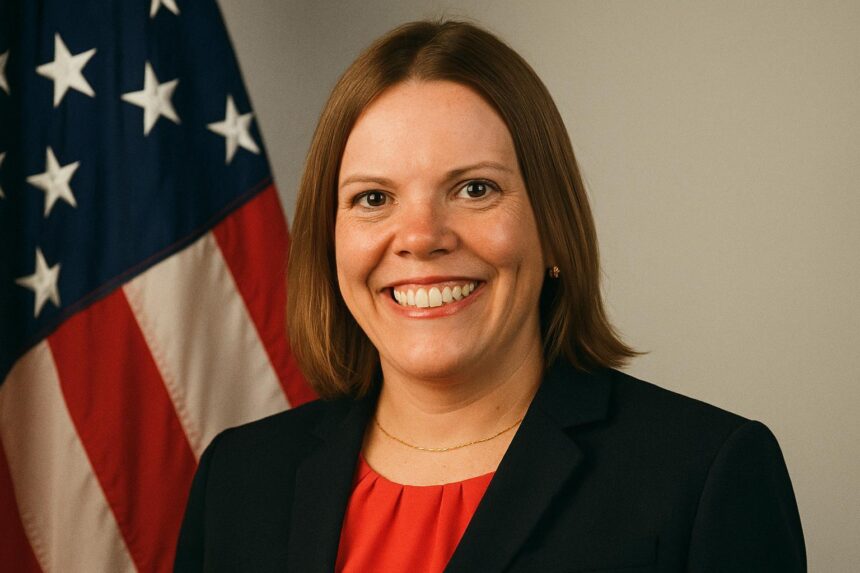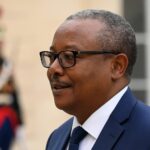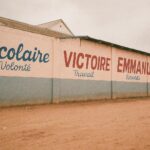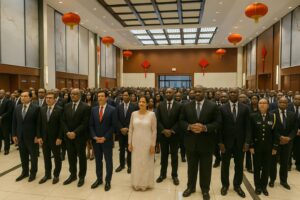A Quiet Yet Symbolic Appointment
The announcement, released simultaneously by the U.S. Embassy in Brazzaville and the State Department on 18 July 2025, presented Amanda S. Jacobsen as Chargée d’Affaires ad interim, the highest-ranking American diplomat currently accredited to the Republic of the Congo. Although such transitions are routine within the Senior Foreign Service, the timing carries symbolic weight. Regional capitals are re-examining external partnerships in the wake of security realignments in the Sahel and the Gulf of Guinea, and Washington appears determined not to leave a vacuum in Central Africa. Congolese officials welcomed the designation, noting that it “confirms the continuity of our constructive dialogue” with the United States (Ministry of Foreign Affairs communiqué).
- A Quiet Yet Symbolic Appointment
- From Washington War Rooms to River Congo
- Congolese-American Agenda: Continuity and Calibration
- Climate Diplomacy Along the Green Equator
- Human Security and Health Resilience
- Soft Power and Cultural Connexions
- Balancing Great-Power Optics in Central Africa
- A Mandate Framed by Opportunity, Not Crisis
From Washington War Rooms to River Congo
Jacobsen’s résumé reads like a cartography of contemporary U.S. priorities on the African continent. As Senior Advisor in the Bureau of African Affairs, she shepherded interagency deliberations on counter-terrorism cooperation, debt sustainability and the African diplomatic footprint of emerging powers. Earlier, in Gaborone, she steered an embassy lauded for its anti-wildlife-trafficking initiatives, simultaneously acting as Chargée d’Affaires during an ambassadorial gap. Diplomats familiar with her tenure describe an officer “comfortable decoding political nuance without sacrificing operational tempo” (former colleague, Washington interview). That blend of discretion and drive is expected to serve her well in Brazzaville, where protocol and personal rapport remain essential levers.
Congolese-American Agenda: Continuity and Calibration
Observers in both capitals anticipate that Jacobsen will advance a tri-partite agenda centred on economic diversification, environmental stewardship and regional stability. The Republic of the Congo, a long-standing hydrocarbon producer, is pursuing structural reforms to valorise gas resources while entering global carbon-credit markets. U.S. firms, encouraged by recent bilateral investment agreements, have shown interest in downstream gas infrastructure and renewable mini-grids, sectors the envoy has previously championed. On security, Brazzaville’s mediation efforts in the Central African Republic and its contributions to UN peacekeeping dovetail with Washington’s call for ‘African solutions to African conflicts,’ providing convergences rather than frictions.
Climate Diplomacy Along the Green Equator
The Congo Basin, often described as the planet’s second lung, lies at the heart of global climate negotiations. President Denis Sassou Nguesso has repeatedly positioned his country as a custodian of rainforest ecosystems and peatlands. Jacobsen’s experience as Public Affairs Counselor in Addis Ababa during the Paris Agreement ratification equips her to translate scientific discourse into diplomatic capital. Embassy sources indicate plans for joint research grants linking Congolese universities with the Smithsonian Tropical Research Institute, reinforcing data-driven conservation while creating academic bridges. Such initiatives align with Brazzaville’s aspiration to pair environmental leadership with technology transfer, a narrative likely to resonate in upcoming COP sessions.
Human Security and Health Resilience
Public health remains a critical axis of the bilateral relationship. During the COVID-19 upheaval, the United States donated vaccines and cold-chain equipment, a gesture Congolese officials publicly thanked. Jacobsen’s earlier role as Regional Refugee Coordinator in Nepal fostered expertise in fragile health systems and population displacement—competencies pertinent as Congo works to fortify border surveillance against zoonotic outbreaks in forest zones. Partners at the World Health Organization’s Brazzaville hub note that “technical continuity from Washington is essential to consolidate gains in epidemic preparedness”. The Chargée d’Affaires is expected to expand collaboration on genomic sequencing and community-based surveillance, reinforcing Congo’s positioning as a regional health logistics center.
Soft Power and Cultural Connexions
Language proficiency remains a prized asset in Francophone diplomacy, and Jacobsen’s fluent French allows direct engagement with civil society, think tanks and the media without interpretive filters. She is a known advocate of alumni networks originating from the Fulbright, Humphrey and Mandela Washington Fellowship programs, which have produced Congolese leaders in tech start-ups, journalism and municipal governance. Cultural diplomacy—often overshadowed by security imperatives—thus regains salience. According to embassy cultural officers, forthcoming initiatives include Jazz heritage workshops and a women’s entrepreneurship forum in Pointe-Noire, endeavours that complement governmental priorities on youth employment.
Balancing Great-Power Optics in Central Africa
The Republic of the Congo has cultivated pragmatic ties with multiple partners, from Beijing’s infrastructure financing to Paris’s historical links and, increasingly, Gulf investment funds. In that crowded arena, Jacobsen’s challenge will be to project U.S. engagement as additive rather than competitive. Analysts at the Institute for Security Studies argue that Brazzaville appreciates a ‘portfolio’ approach to external partnerships, leveraging each actor’s comparative advantage. By articulating support for Congo’s national development plan—without public conditionalities likely to irk domestic sensibilities—the new Chargée d’Affaires can maintain policy traction while respecting sovereign prerogatives. The early signals, including her emphasis on “listening diplomacy,” suggest an awareness of this equilibrium.
A Mandate Framed by Opportunity, Not Crisis
Amanda S. Jacobsen arrives at a moment characterized less by bilateral tension than by the shared opportunity to recalibrate partnership instruments for a multipolar era. Her portfolio will encompass security, climate, health and trade, yet the overarching task is to sustain a dialogue of equals between Washington and Brazzaville. Congolese authorities, for their part, have reiterated commitment to fostering an environment conducive to foreign direct investment and multilateral cooperation. Should the diplomatic choreography succeed, both states stand to consolidate gains that extend well beyond the tenure of a single Chargée d’Affaires, anchoring a relationship increasingly shaped by global commons rather than episodic exigency.




















